The perfect time to reduce, reuse, and recycle is now! If you want to give your homestead a makeover, better start from your “golden” trash.
20 Ways to Reduce, Reuse, and Recycle on the Homestead
If your homestead is in an area that doesn’t benefit from trash or recycling services, cutting down on waste is bound to be a high priority. Reducing, reusing, and recycling is of great importance on the homestead. So many of the resources we rely on daily are non-renewable — which means once we use them, they’re gone. When we rely heavily on these resources for day-to-day operations, we’re not only hurting the planet from a conservation standpoint, we’re also more likely to be burned by market fluctuations.
If you’re looking for ways to implement the three R's on your homestead, consider the following ideas.
Paper, Plastic, and Glass
Recycling isn’t always the easiest undertaking when you live in a rural area, so it may be more beneficial to direct your attention toward reducing and reusing first. Once you start looking for opportunities for reuse, you may be surprised to find how many there really are!
Paper
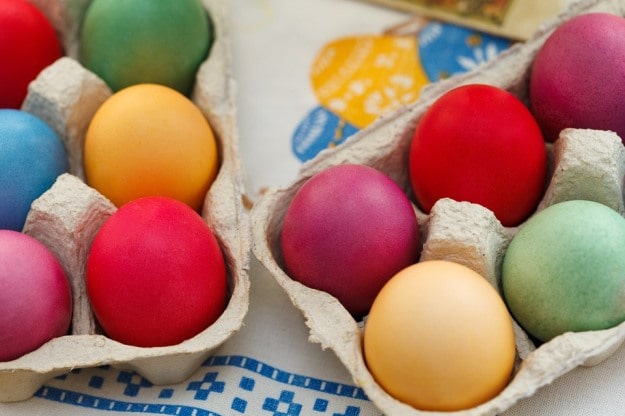
There’s simply no reason to throw away paper when there’s a world of ways to reuse it. Used paper is incredibly versatile. It can be turned into a number of new items, or repurposed for utilitarian needs.
- Egg cartons and toilet paper rolls can be used as seed starters for the garden. They supply good drainage and aeration, and are completely biodegradable!
- Create notepads by cutting used computer paper into quarters and clipping them together.
- Packing paper (from Amazon and the like) can be woven into baskets.
- Roll old magazines and wrapping paper into pretty paper beads for your next jewelry making project.
- Do you have some particularly beautiful used wrapping paper that you can’t bear to throw away? Frame it, use it as matting for photos, or create a bunting to hang on the wall!

- Newspaper, sheet music, and packing paper are all wonderful materials for wrapping gifts. They can be easily dressed up with gift tags and leftover ribbons.
- Any scrap paper that you just can’t seem to find a home for can be scrunched up and used as cushioning when packing boxes.
- Newsprint is an excellent mulch for the garden. Tear it into strips layer it around your plants to keep the soil moist and deter weeds. It will eventually break down and enrich the soil.
- A newspaper is also great for the compost pile, as it’s carbon-rich! Tear it into small pieces to help it break down faster.
- Shred scrap paper and use it around the homestead in a variety of different ways. From fire-starters to chicken bedding, you’ll be shocked at how functional it is.
Plastic
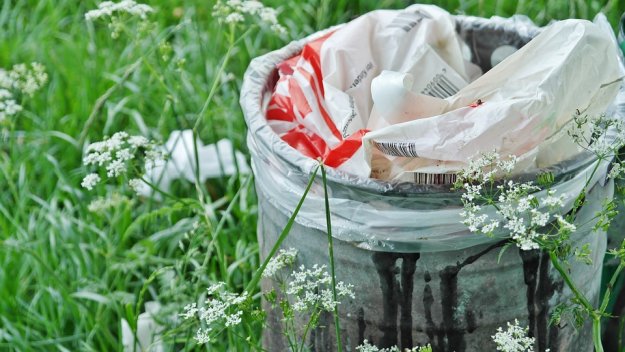
Plastics are particularly bad for the environment as they do not biodegrade. They do however break down into smaller and smaller pieces, eventually becoming microplastics. Plastic pollution in the ocean is often mistaken for food by marine life. Once ingested, it leads to death by suffocation, drowning, or starvation. We can do our part to protect the planet and wildlife by reducing our dependence on plastics — and reusing and recycling what we do consume.
- Plastic shopping bags can be repurposed as stuffing for pillows, braided into jump ropes, or crocheted into reusable bags! Find more ideas for reuse here.
- From sprinklers to jewelry, there's an almost unending number of ways plastic bottles can be reused. Check out a handful of ideas here. And if you’re really crafty, consider using them as material for your next masterpiece!
- Ziplock bags can be rinsed and reused hundreds of times.
- Use cloth shopping bags instead of plastic. Keep reusable bags in your car or by the front door so you don’t forget them when you go to store.
- Skip the plastic and drink water out of a reusable bottle.
- Say no to disposable drinking straws. If you absolutely must have one, invest in a reusable version.
Glass
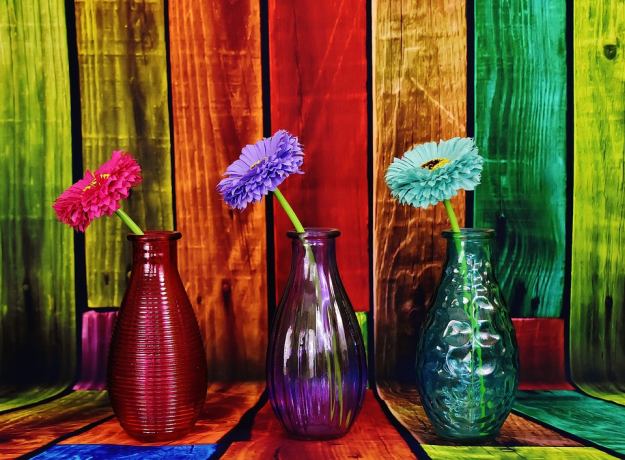
Reusing glass is not only easy, it’s environmentally friendly! Discarding (and even recycling) glass generates great expenditures of energy, fuel, and space. You can avoid this by:
- Upcycling glass bottles into planters, storage, and decor.
- Using broken glass in art projects (since it can’t be recycled).
- Reducing your dependence on plastics by buying in bulk and storing pantry staples in glass jars.
Finally, save everything that you can’t reuse and make monthly trips to your nearest recycling center.
Food Waste
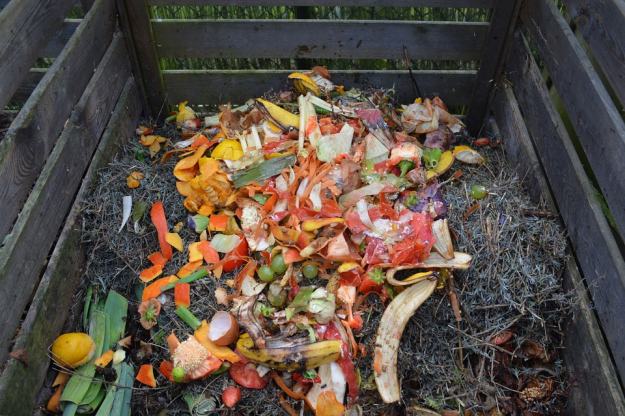
There’s no better way to reuse/recycle than composting — in fact, you could almost say that composting is nature’s way of recycling. When you have a garden or outdoor plants, food waste should never be thrown out. Composting will turn that trash into fertilizer gold!
Simply put, composting is the active breakdown of foods and other materials through an organic process. The more variety of nutrients you put into your pile, the richer the compost becomes. What’s more, compost comprised of a variety of waste materials commonly harbors vital micronutrients! Composting is great for the environment as it reduces landfill waste, emissions, and dependence on fossil fuels.
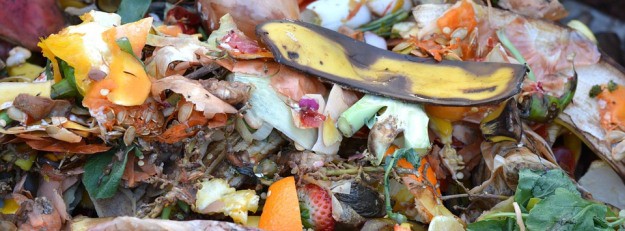
There are five main types of composting:
- On-site composting
- Vermicomposting
- Aerated (turned) windrow composting
- Aerated static pile composting
- In-vessel composting
They type of composting that will work best for you depends on a number of factors, such as your local climate, the size of your homestead, what you’ll use the compost for, and how much you need.
Composting bins come in many shapes and sizes. Build (or buy) the one that fits your particular needs. Just be sure the bin has holes to help gases escape! There are very little work and resources needed to compost, yet the impact it has on the environment is huge.
Got some bottle caps? Watch this video and find out how to reuse them creatively!
Turning waste into new resources is quite possibly the greenest thing you can do for our planet. With some sprinkle of resourcefulness and creativity, you'll surely come up with awesome crafts beneficial for your homestead and environment. Not to mention, you'll be able to save some bucks too! (Now that's good to hear!) Happy homesteading!
Do you have any tips on how to reduce, reuse, and recycle you want to share with fellow homesteaders? Please leave tips, tricks, and suggestions in the comment section below.
Being able to reduce, reuse, and recycle on your homestead definitely deserves two thumbs up, but you can level up your homesteading skills with these homesteading hacks every homesteader should know!


Leave a Reply